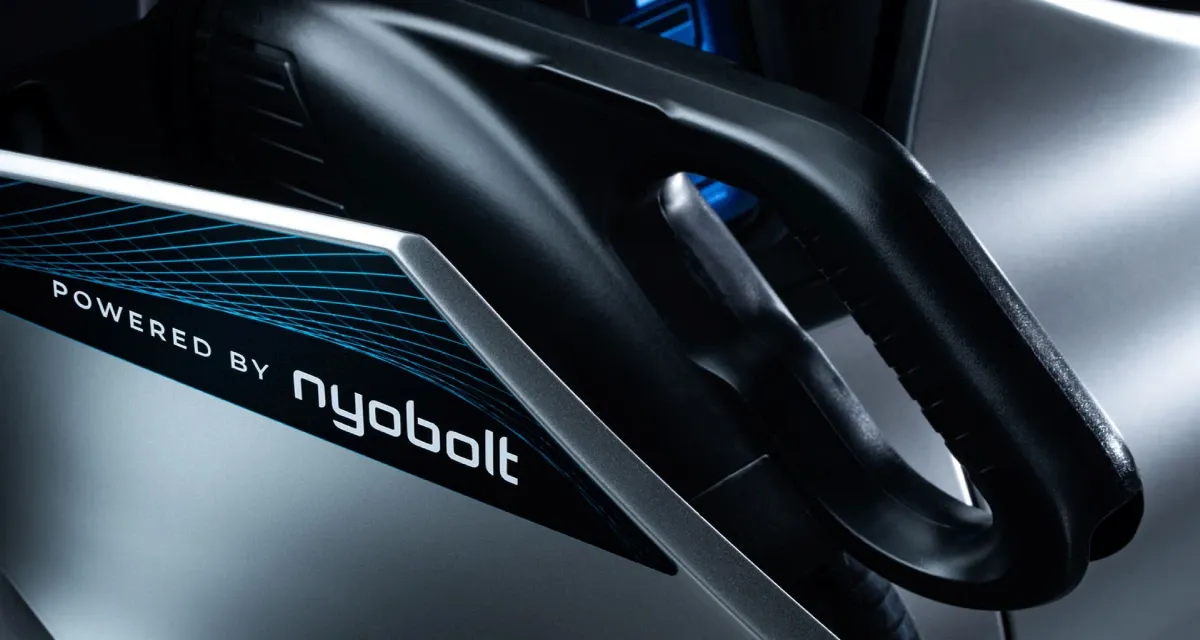

In a groundbreaking demonstration, UK start-up Nyobolt showcased an electric car battery that charges from 10% to 80% in an astonishing four minutes and 37 seconds. This live test, conducted on a test track in Bedford, marks a significant leap in the quest for faster electric vehicle (EV) charging solutions.
Electric vehicle (EV) adoption has been hindered by two major challenges: range anxiety and charging time. Nyobolt's latest achievement directly addresses the latter, bringing us closer to the day when charging an electric vehicle is as quick and convenient as refuelling a gasoline car. During the demonstration, a specially built concept sports car fitted with the Nyobolt battery showcased this impressive charging speed, underscoring the potential for a future where long waits at charging stations are a thing of the past.
Comparatively, current state-of-the-art Tesla superchargers require 15 to 20 minutes to charge a battery to 80%, highlighting the rapid advancement that Nyobolt's technology represents.
Range anxiety, or the fear of running out of battery power before reaching a charging station, remains a significant barrier to the widespread adoption of EVs. According to experts, solving this issue is crucial for encouraging more drivers to switch from traditional internal combustion engines to electric power.
Paul Shearing, Professor of Sustainable Energy Engineering at Oxford University, emphasized the importance of quick charging technology, stating, “Developing technology that enables people to charge more quickly, which chimes with the time it currently takes to refuel a car – is really important. People are going to want fast-charging infrastructure, independent of what car they’re using – everyone wants to do this more quickly.”
Despite these advancements, Shearing and others also stress the need for an expanded and more robust charging infrastructure to support the growing fleet of electric vehicles.
Nyobolt's live demonstration, which took place over two days amid a UK heatwave, was not without its challenges. The concept car's cooling system failed, and the firm had to rely on a standard on-site charger, not designed by Nyobolt. These setbacks prevented the team from replicating their laboratory results, where the battery can reportedly charge from 0% to 100% in just six minutes. Nonetheless, the successful charging demonstration, conducted in front of an audience of industry professionals, was hailed as a significant milestone in the journey towards electrification.
Dr. Sai Shivareddy, co-founder of Nyobolt, reflected on the nerve-wracking nature of the event, saying, “This event is a big milestone for electrification.” Despite the hurdles, he humorously noted that his car was still charging after being plugged in earlier in the day, underscoring the stark contrast between current charging times and the future capabilities demonstrated by Nyobolt.
Nyobolt's vision does not include manufacturing their vehicles. Instead, the company aims to partner with established car brands to integrate their revolutionary battery technology into existing EV models. Nyobolt's battery, which requires 350kW DC superfast chargers, could start appearing in vehicles on a small scale within a year. Although such powerful chargers are available in the UK, their presence is not yet widespread, pointing to another infrastructural challenge that needs addressing.
Moreover, Nyobolt claims their battery technology minimizes degradation, maintaining 80% charge capacity even after 4,000 cycles. To put this into perspective, Apple estimates that its iPhone 15 battery will retain 80% functionality after 1,000 cycles, making Nyobolt's battery longevity particularly impressive.
Nyobolt's innovation is part of a global race to develop faster-charging, more powerful, lighter, and durable batteries. Last year, Toyota announced a breakthrough in solid-state battery technology, promising a battery that could charge in ten minutes and last for 1,200 kilometres (about 754 miles). Similarly, US start-up Gravity has developed a compact charger capable of adding 200 miles of range in under 13 minutes.
Dr Edward Brightman, a lecturer in chemical engineering at Strathclyde University, highlighted that while rapid charging technology is essential for long-distance travel, the broader adoption of electric vehicles hinges on significant upgrades to the power grid and the deployment of rapid chargers.
Nyobolt’s achievement marks a pivotal moment in the evolution of electric vehicles. As the technology matures and becomes more widespread, the dream of a future where EVs can be charged in minutes rather than hours is becoming increasingly tangible. However, realizing this future will require not only advancements in battery technology but also a robust and expansive charging infrastructure that can support the needs of millions of EVs on the road.
As we stand on the cusp of this new era in transportation, Nyobolt's pioneering work offers a glimpse into a world where the convenience and efficiency of EV charging match the demands of modern drivers, paving the way for a greener, more sustainable future.
Also Read: